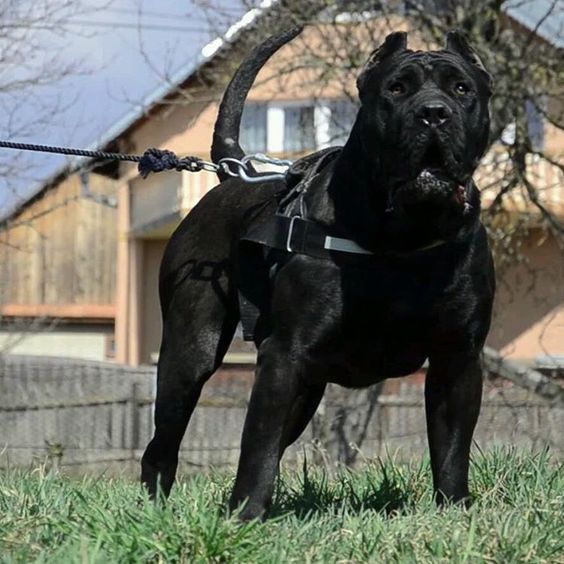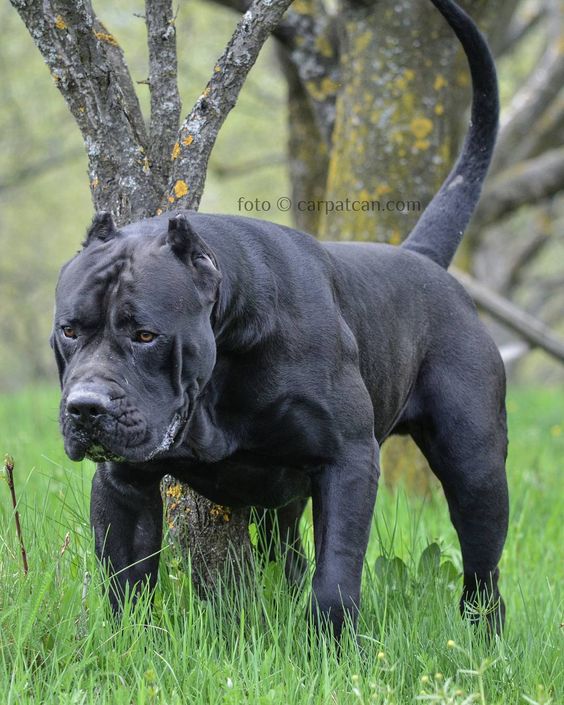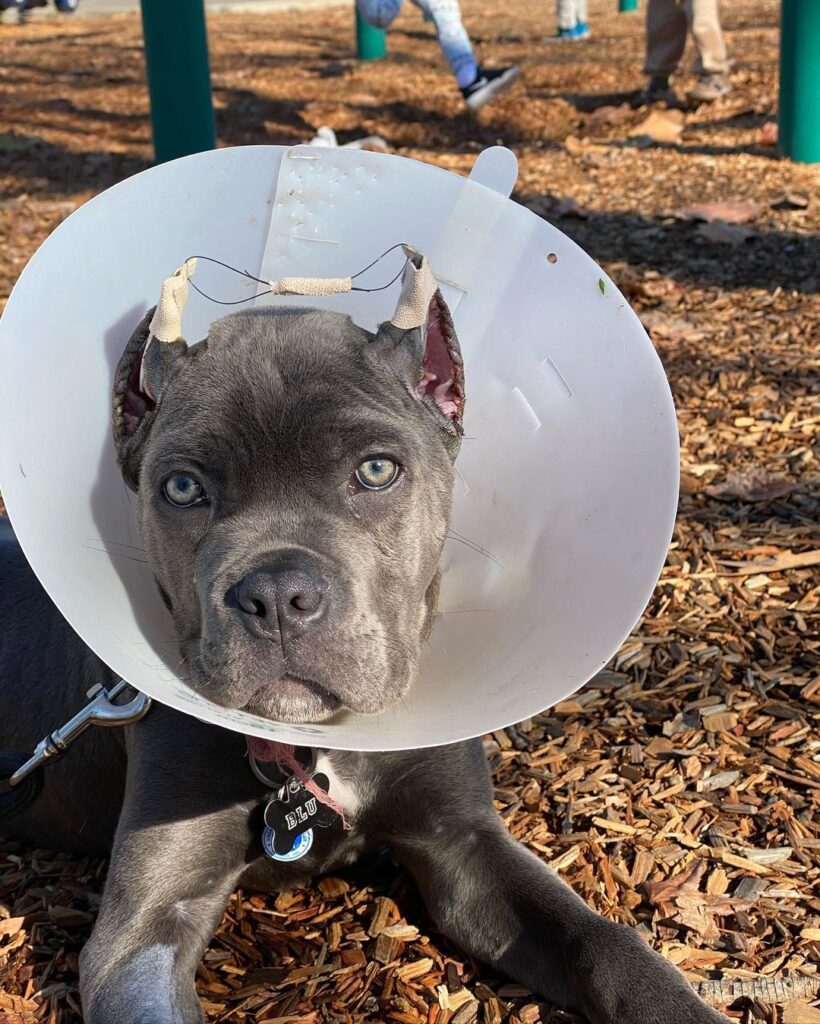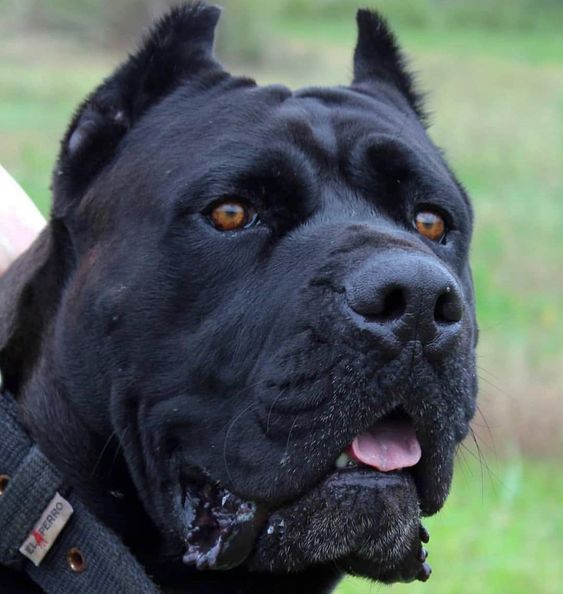
When it comes to your Cane Corso’s health, maintaining an ideal weight is of paramount importance. Whether you have a growing puppy or an adult companion, understanding how to identify and address underweight issues is essential. This comprehensive guide will walk you through the key steps in ensuring your Cane Corso’s well-being. “How to Put Weight on a Cane Corso”
How to Identify That Your Cane Corso is Underweight
Before you can help your Cane Corso put on healthy weight, it’s crucial to recognize the signs of underweight. A thin dog isn’t just a cosmetic concern; it can indicate underlying health problems. Common signs include visible ribs, prominent hip bones, a lack of muscle mass, a dull coat, and low energy levels. Identifying these signs early can prevent more severe health issues down the road.
Why is it Important to Recognize Underweight Cane Corso?
Understanding why it’s crucial to spot underweight issues is the first step in providing the best care for your Cane Corso. An underweight dog is more susceptible to health problems, including a weakened immune system, bone and joint issues, and a higher risk of illness. By recognizing these signs and addressing them promptly, you can help your Cane Corso lead a healthier and happier life.
Ensuring your Cane Corso maintains a healthy weight not only improves their overall well-being but also enhances their quality of life. From recognizing the signs of an underweight dog to understanding the importance of timely intervention, this guide will equip you with the knowledge you need to provide the best care for your beloved Cane Corso. Stay tuned as we explore various strategies to help your Cane Corso reach and maintain their ideal weight.
Normal growth stages of a Cane Corso
| Age (in Months) | Weight (in Pounds) | Height (in Inches) |
|---|---|---|
| 2 months | 15 – 25 | 10 – 12 |
| 3 months | 25 – 40 | 12 – 14 |
| 4 months | 35 – 55 | 14 – 16 |
| 6 months | 55 – 85 | 16 – 18 |
| 9 months | 75 – 115 | 24 – 26 |
| 12 months | 95 – 140 | 24 – 27 |
| 18 months | 110 – 150 | 24 – 28 |
| 24 months | 110 – 150 | 24 – 28 |
Putting Weight on a Cane Corso Puppy
Puppies are bundles of energy, and Cane Corso puppies are no exception. However, ensuring that they gain weight healthily is essential for their growth and development. Putting weight on a Cane Corso puppy requires a balanced approach that encompasses nutrition, exercise, and diligent monitoring. Let’s delve into each of these aspects to help your little companion thrive.
Puppy Nutrition
Proper nutrition is the foundation for a healthy and well-nourished Cane Corso puppy. Start by choosing a high-quality puppy food that meets their specific dietary needs. Look for options that list meat as the primary ingredient and are free from artificial additives. Establish a regular feeding schedule, usually three to four times a day, and ensure portion control to prevent overeating.
Exercise for Cane Corso Puppies
While ensuring adequate nutrition is vital, exercise plays a significant role in putting weight on a Cane Corso puppy. These puppies are naturally active and require physical stimulation to build muscle and develop a healthy body. Engage in age-appropriate exercise routines such as short walks, interactive playtime, and gentle obedience training. Be cautious not to overexert your puppy, as their growing bodies are still delicate.
Monitoring Your Cane Corso Puppy’s Progress
To gauge the effectiveness of your efforts, it’s crucial to monitor your Cane Corso puppy’s progress regularly. Weigh your puppy weekly to track their weight gain. You should notice gradual and steady growth. Additionally, pay attention to other indicators of health, such as coat condition and overall energy levels. If you have concerns or if your puppy’s weight gain isn’t as expected, consult your veterinarian promptly for professional guidance.
Putting weight on a Cane Corso puppy is a delicate balance that requires a mix of proper nutrition and exercise, all while closely monitoring their development. By providing the right diet, engaging in appropriate physical activities, and keeping a watchful eye on your puppy’s progress, you can ensure that they grow into a healthy and strong adult Cane Corso.
Putting Weight on an Adult Cane Corso
Maintaining an ideal weight in your adult Cane Corso is crucial for their overall health and well-being. If you have an underweight adult Cane Corso, it’s essential to adopt a comprehensive approach to help them gain weight safely and effectively. Let’s explore the key aspects of putting weight on an adult Cane Corso.
Adult Cane Corso Diet
A well-balanced diet is the cornerstone of achieving and maintaining a healthy weight for your adult Cane Corso. Opt for high-quality dog food that contains a balanced mix of protein, fat, and carbohydrates. Look for options with meat as the primary ingredient and avoid foods with excessive fillers or additives. Depending on your dog’s specific needs, your veterinarian may recommend specialized diets or supplements to support weight gain.
Exercise for Adult Cane Corsos
While exercise is vital for all dogs, it’s particularly important for adult Cane Corsos. Regular physical activity helps build muscle, maintain a healthy metabolism, and improve overall fitness. Engage your Cane Corso in daily exercise routines, including brisk walks, playtime, and strength-building exercises. Keep in mind that Cane Corsos are known for their strength, so ensure that the exercises are appropriate for their size and fitness level.
Consultation with a Veterinarian
When dealing with an underweight adult Cane Corso, it’s essential to seek guidance from a veterinarian. Professional advice can help identify any underlying health issues that might be contributing to the weight loss. A veterinarian can also create a tailored weight gain plan, recommend appropriate dietary adjustments, and monitor your Cane Corso’s progress.
The key to putting weight on an adult Cane Corso lies in a combination of a balanced diet, regular exercise, and professional guidance. By providing your Cane Corso with the right nutrition, engaging them in appropriate physical activities, and consulting with a veterinarian, you can help your adult companion reach and maintain a healthy weight, ensuring a long and happy life together.
What Are the Health Problems That Affect Underweight Cane Corsos

Addressing an underweight Cane Corso is not just about aesthetics; it’s about ensuring their overall health and well-being. When a Cane Corso is underweight, it can lead to a range of health problems that should not be underestimated. Understanding these potential health concerns and taking preventive measures is crucial for the longevity and happiness of your canine companion.
Potential Health Concerns
Underweight Cane Corsos are more vulnerable to various health issues, including:
- Malnutrition: Insufficient nutrient intake can lead to a weakened immune system, making your dog susceptible to infections and diseases.
- Weakened Immune System: Poor nutrition can compromise your Cane Corso’s immune system, making them less able to fight off illnesses.
- Bone and Joint Problems: A lack of proper nutrition can affect bone and joint development, potentially leading to conditions like arthritis and skeletal deformities.
- Low Energy Levels: An underweight dog may lack the energy needed for daily activities, leading to a decreased quality of life.
Preventive Measures
To prevent these health concerns and ensure the well-being of your underweight Cane Corso, consider the following preventive measures:
- Regular Veterinary Checkups: Schedule regular checkups with your veterinarian to monitor your dog’s health and weight. Early detection of weight-related issues can lead to prompt intervention.
- Balanced Diet: Provide a balanced diet that meets your Cane Corso’s nutritional needs. Consult with your veterinarian to determine the best food and portion sizes for your dog’s specific situation.
- Adequate Exercise: Incorporate regular exercise into your Cane Corso’s routine to promote muscle development and overall fitness. Ensure that the exercise regimen is suitable for their age and fitness level.
- Supplements: If advised by your veterinarian, consider adding supplements like omega-3 fatty acids or high-calorie supplements to your dog’s diet to support weight gain and overall health.
FAQs
1. What is the ideal weight range for a Cane Corso?
Answer: The ideal weight for a male Cane Corso is between 100-110 pounds, while females should weigh around 88-99 pounds.
2. How can I tell if my Cane Corso is underweight?
Answer: Look for signs such as visible ribs, hip bones, and a lack of muscle mass. Consult your vet for confirmation.
3. Can I use homemade diets to put weight on my Cane Corso?
Answer: It’s best to consult with a veterinarian for a balanced commercial diet suitable for your dog’s specific needs.
4. Should I increase the portion size if my Cane Corso is underweight?
Answer: Yes, but do so gradually and under the guidance of your veterinarian to avoid digestive issues.
5. Are there any supplements that can help my Cane Corso gain weight?
Answer: Your vet may recommend supplements like omega-3 fatty acids or high-calorie supplements if necessary.
6. How much exercise should I provide for my underweight Cane Corso?
Answer: Moderate exercise is crucial. Consult your vet for a tailored exercise plan to prevent overexertion.
7. Can underweight Cane Corsos develop serious health issues?
Answer: Yes, they are at risk of various health problems, including weakened immune systems and bone issues.
8. What role does age play in putting weight on a Cane Corso?
Answer: Age is a factor. Puppies and adult dogs may require different diets and exercise routines.
9. How long does it take to see improvements in my Cane Corso’s weight?
Answer: It varies, but you should start seeing improvements within a few weeks with proper care.
10. When should I consult a veterinarian about my underweight Cane Corso?
Answer: If you notice weight loss or have concerns about your dog’s weight, consult a vet promptly for a thorough evaluation.
Conclusion
In the journey of understanding how to put weight on a Cane Corso, we’ve explored the critical aspects of identifying underweight concerns, addressing them in both puppies and adults, and the potential health risks that accompany undernourishment.
Recognizing the signs of an underweight Cane Corso and understanding the importance of timely intervention is the first step towards a healthier and happier companion. Whether you have a growing puppy or an adult Cane Corso, a balanced approach to nutrition and exercise is paramount.
With over 4 years of devoted companionship with my beloved Labrador Retriever, Robin, I have cultivated a deep understanding and expertise in all things canine. From training and behavior to health and well-being.


